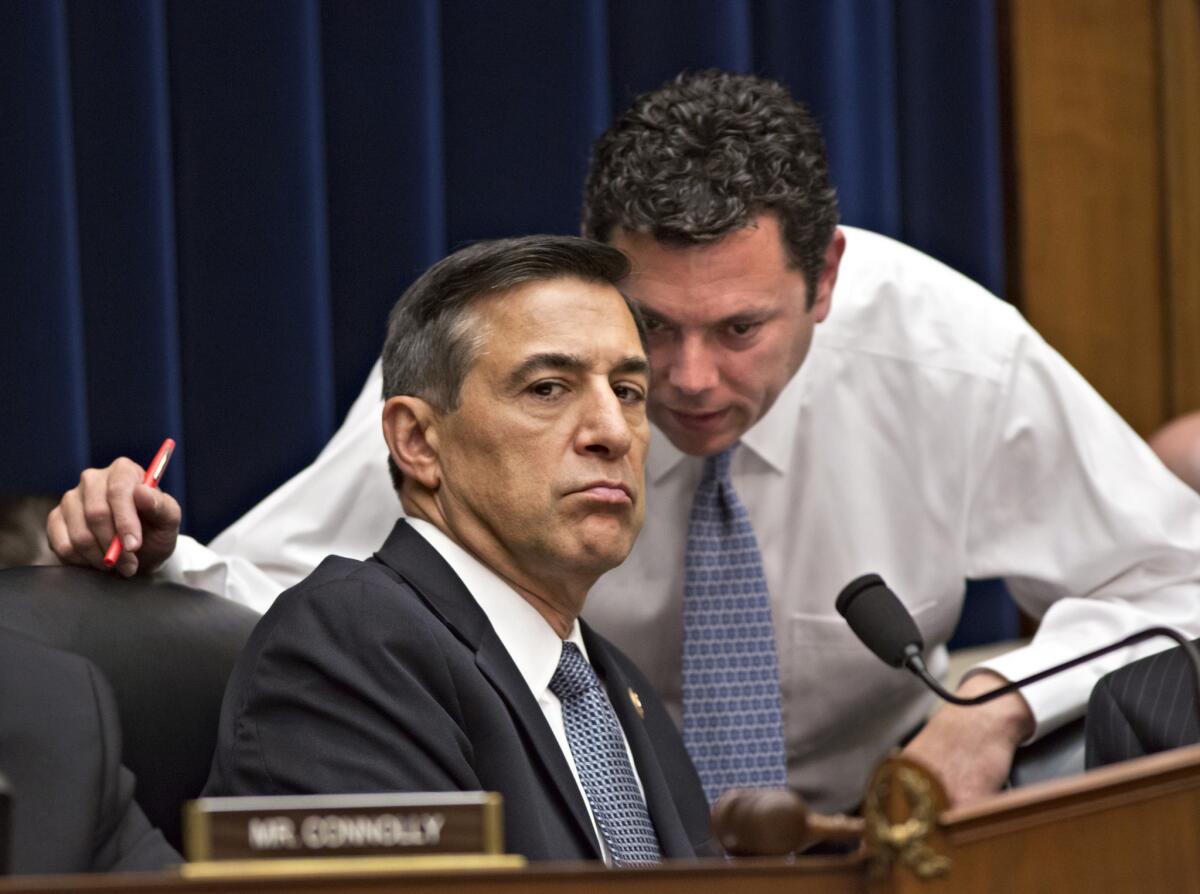Proof that the point of the IRS ‘scandal’ was to cut the IRS budget

- Share via
It was obvious almost from the inception of the ginned-up IRS “scandal” that its goal was to intimidate the agency into allowing bogus nonprofits to funnel cash into election campaigns.
That’s exactly what happened, as is shown by an exhaustive study by the Center for Public Integrity. Nonprofit tax-exempt “social welfare” organizations, known as C4s from their description in section 501(c)4 of the tax code, aren’t permitted to claim a tax exemption for election activities--in fact, they’re not supposed to engage in campaign activities at all.
But with the connivance of Congress, they’ve been crossing the line with impunity. That’s a threat to the electoral process, because C4’s are permitted to keep their donors secret. Money plus secrecy--the politician’s dream.
We reported on the C4 dodge as early as 2012. When the IRS began trying to rein in C4s, something had to be done. Presto: the IRS “scandal,” based on assertions from conservatives in Congress that the agency had targeted only right-wing C4s for scrutiny.
That has turned out to be completely untrue: the center’s investigation was able to identify only 10 C4s whose applications for tax-exempt status had been rejected by the IRS since 2010. Among them were six groups that train Democratic women in how to run for office, and a seventh that politicked on behalf of former Sen. Blanche Lincoln, D-Ark.
Those inquiries were the last of their kind. After the IRS investigation was launched by that notorious hatchetman, Rep. Darrell Issa, R-Vista, “the IRS’ nonprofit division ... effectively lost whatever nerve it had left,” the center’s report says.
Among the beneficiaries of its paralysis was the biggest “social welfare” front, Karl Rove’s Crossroads GPS. But so too were liberal groups, such as Patriot Majority USA and Priorities USA.
As Kevin Drum observes, the other shoe has finally dropped: Congress is now moving aggressively to cut the enforcement budget of the IRS. The “scandal” provides cover for this maneuver. Says Rep. Paul Gosar, R-Ariz., sponsor of a measure to strip $353 million out of the IRS enforcement budget, “this agency has shown contempt for the American taxpayer.”
Well, rich and influential taxpayers, anyway. Historical statistics show that as the IRS loses budget resources and manpower, the audit rate declines. Naturally, that’s a boon for wealthier taxpayers and business filers, who have the most incentive to cheat. The intimidation of the agency’s nonprofit enforcement staff, who had the thankless job of trying to lasso organizations that were funneling secret donations to their congressional overseers on Capitol Hill, will only encourage more spending and more secrecy by donors who have only their interests, and not the public interest, at heart.
If you didn’t know this is how the IRS scandal-mongering would turn out, you haven’t learned your history.
Keep up to date with The Economy Hub by following @hiltzikm.
More to Read
Inside the business of entertainment
The Wide Shot brings you news, analysis and insights on everything from streaming wars to production — and what it all means for the future.
You may occasionally receive promotional content from the Los Angeles Times.










